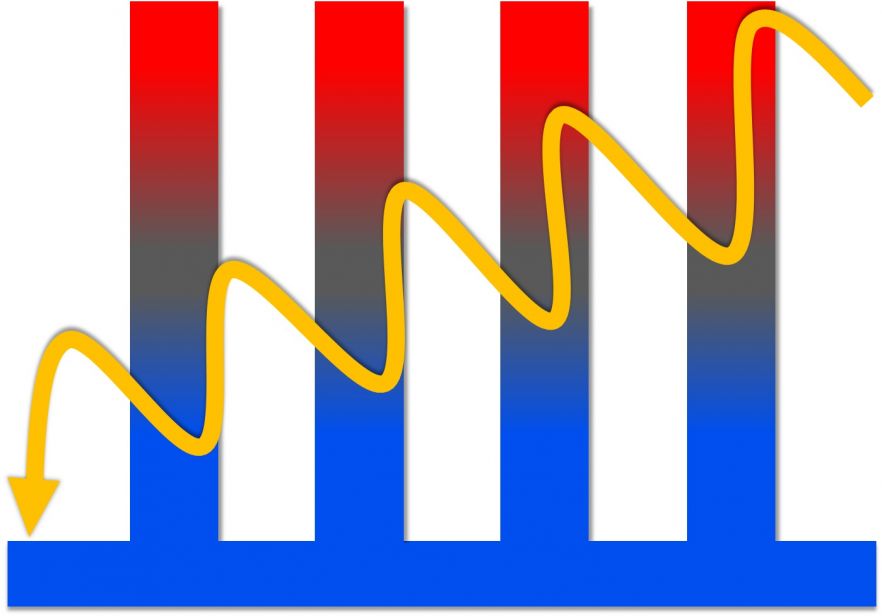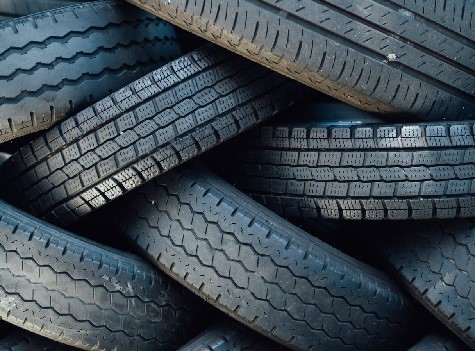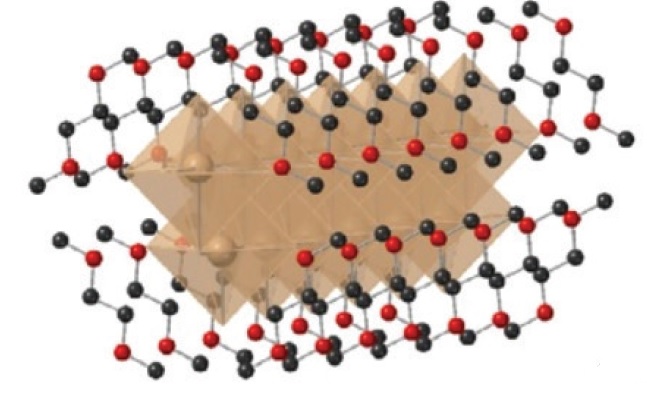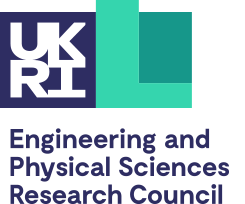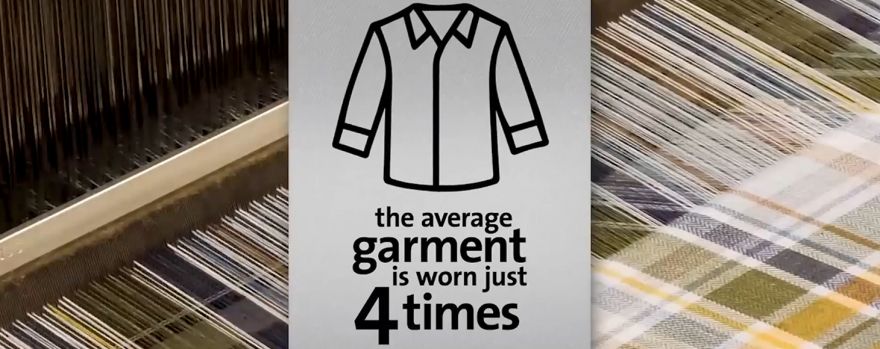£9,813,224
Centre for Sustainable Engineering
Funded Research Projects
The following are current funded research projects taking place within the research centre:
Harnessing Nanotechnology for Self-Powered Wireless ElectronicsPrincipal Investigator: Funding source: Royal Society / Royal Society Start: 01-01-2023 / End: 31-12-2027 Amount: £982,174 |
Exploring nanostructured light absorbers: from optoelectronics to innovative photovoltaicsPrincipal Investigator: Funding source: Royal Commission for the Exhibition of 1851 Start: 01-12-2022 / End: 30-11-2027 Amount: £84,100 |
Multifunctional High Entropy Carbide and Boride Ceramic Composites: Compositional Space, Novel Synthesis, and Property TailoringPrincipal Investigator: Michael REECE Funding source: EPSRC Engineering and Physical Sciences Research Council Start: 01-02-2024 / End: 31-01-2027 Amount: £523,977 |
Utilisation of Synthetic Fuels for “Difficult-to-Decarbonise” Propulsion (EP/X019551/1)Principal Investigator: Xi JIANG Co-investigator(s): Nader KARIMI and Edo BOEK Funding source: EPSRC Engineering and Physical Sciences Research Council Start: 01-08-2023 / End: 31-07-2026 Amount: £436,930 This project is intended to obtain a thorough understanding on liquid synthetic fuel utilisation. The study will follow a combined modelling / simulation - experimentation approach, predicting the physicochemical properties including emission characteristics of the alternative fuels. |
From 2D to 4D: correlative imaging and modelling for next-generation automotivePrincipal Investigator: Xuekun LU Funding source: EPSRC Engineering and Physical Sciences Research Council Start: 01-07-2023 / End: 30-06-2026 Amount: £448,598 |
FENCES: FErroelectric NanoComposites for Enhanced Solar energy efficiencyPrincipal Investigator: Joe BRISCOE Funding source: EU Commission - Horizon 2020 Start: 01-06-2021 / End: 31-05-2026 Amount: £1,599,992 FENCES will develop a new approach to solar energy conversion by incorporating nanostructured ferroelectric materials into solar energy devices for both solar-to-electric (photovoltaic) and solar-to-fuel (photocatalysis) conversion. By coupling the bulk photovoltaic effect in the ferroelectric with high efficiency solar absorbs materials, FENCES aims to demonstrate a new route to solar energy conversion with the potential to exceed established efficiency limits. |
Prevention of phase-separation of corrosive aqueous acidic solution out of liquid carbon dioxide - SEMS Industry-supported PhD studentshipPrincipal Investigator: Radomir SLAVCHOV Funding source: CHANCELLOR, MASTERS AND SCHOLARS OF THE UNIVERSITY OF CAMBRIDGE Start: 02-04-2023 / End: 01-04-2026 Amount: £79,541 |
Bacterial nanocellulose -based polymer composites as solid polymer electrolyte for metal ion-batteriesPrincipal Investigator: Ana JORGE SOBRIDO Funding source: Royal Society Start: 31-03-2024 / End: 30-03-2026 Amount: £12,000 |
Sustainable Electrodes for Advanced Flow BatteriesPrincipal Investigator: Ana JORGE SOBRIDO Funding source: MRC Medical Research Council Start: 01-02-2021 / End: 31-01-2026 Amount: £1,163,370 The research programme proposed in this Fellowship application details a plan to develop alternative electrodes for RFBs using sustainable resources. RFBs often employ carbon felts as electrodes, prepared from non-sustainable polyacrylonitrile (PAN), and their activity towards the redox reactions is poor, leading to low efficiency systems. I propose to use electrospinning, a very versatile processing technique that allows for fine control of the features of the materials prepared, to produce a new generation of freestanding electrodes with unique tailored properties that will increase the power density and voltage efficiency of RFBs. |
(RECYCLENS) Enhancing Confidence in the Use of Recycled Polymers and Composites via Electrical SensingPrincipal Investigator: Han ZHANG Funding source: EPSRC Engineering and Physical Sciences Research Council Start: 01-02-2024 / End: 31-01-2026 Amount: £49,996 |
HIPES MSCA PF 2022Principal Investigator: Haixue YAN Funding source: EPSRC - EU Scheme Start: 01-11-2023 / End: 31-10-2025 Amount: £187,096 |
Energy filtering for high Seebeck voltages in ordered nanocompositesPrincipal Investigator: Oliver FENWICK Funding source: Defence Science and Technology Lab.-GOV UK Start: 01-10-2022 / End: 30-09-2025 Amount: £99,985 |
Material, process and development of a novel composite, layered, plastic-free leather alternative derived from waste brewery grainPrincipal Investigator: Dimitrios PAPAGEORGIOU Funding source: Innovate UK Start: 01-10-2023 / End: 30-09-2025 Amount: £184,150 |
Paragraf support fund 2Principal Investigator: Colin HUMPHREYS Funding source: Paragraf Paragraf Limited Start: 01-08-2021 / End: 31-07-2025 Amount: £33,540 |
Maximising Efficiency of Liquid Phase Oligo SynthesisPrincipal Investigator: Andrew LIVINGSTON Funding source: Innovate UK Start: 01-06-2023 / End: 31-05-2025 Amount: £636,789 |
CELLCOMP: Data-driven Mechanistic Modelling of Scalable Cellular Composites for Crash Energy AbsorptionPrincipal Investigator: Wei TAN Funding source: EPSRC Engineering and Physical Sciences Research Council Start: 01-01-2022 / End: 10-04-2025 Amount: £392,388 The project funded by EPSRC will create an intelligent data-driven virtual testing tool to assess an emerging type of lightweight materials, known as synthetic cellular composites (CCs). |
Transforming synthetic drug manufacturing: novel processes, methods and toolsPrincipal Investigator: Andrew LIVINGSTON Funding source: EPSRC Engineering and Physical Sciences Research Council / EPSRC Engineering and Physical Sciences Research Council Start: 01-07-2021 / End: 31-03-2025 Amount: £584,126 Transforming synthetic drug manufacturing: novel processes, methods and tools |
Single crystal perovskite fibrePrincipal Investigator: Lei SU Co-investigator(s): Oliver FENWICK Funding source: EPSRC IAA; HEIF Start: 01-09-2023 / End: 31-03-2025 Amount: £100,000 In this project, we will explore the application of single-crystal perovskite fibres. |
High Performance Thermoelectric Film with Organic-Inorganic Van der Waals HeterostructuresPrincipal Investigator: Oliver FENWICK Funding source: Royal Society Start: 31-03-2023 / End: 30-03-2025 Amount: £12,000 |
Exploring the utility of transfer learning for describing material propertiesPrincipal Investigator: Funding source: Royal Society Start: 31-03-2023 / End: 30-03-2025 Amount: £12,000 |
Designing electrochemical interfaces for ultradurable sodium-ion batteriesPrincipal Investigator: Maria CRESPO-RIBADENEYRA Funding source: Royal Society Start: 01-03-2024 / End: 28-02-2025 Amount: £69,832 |
Molecular separations membranes for high boiling green solventsPrincipal Investigator: Andrew LIVINGSTON Funding source: SIGMA-ALDRICH CORPORATION Start: 01-02-2024 / End: 31-01-2025 Amount: £199,242 |
Circular economy elastomer productsPrincipal Investigator: James BUSFIELD Funding source: EPSRC Engineering and Physical Sciences Research Council Start: 01-02-2022 / End: 31-01-2025 Amount: £395,434 The sustainability of elastomer industry is under huge scrutiny as many polymers are derived from fossil fuels and a large amount of rubber waste generated annually is not recycled. This research programme will develop novel circular economy elastomer products from renewable biobased feedstocks, with zero waste and high resource efficiency. |
Royal Society University Research Fellowship Renewal : Oliver FenwickPrincipal Investigator: Oliver FENWICK Funding source: Royal Society Start: 19-10-2020 / End: 18-10-2024 Amount: £389,434 This project will develop crystalline materials comprising well-defined nano-objects arranged on a regular lattice. These nano-objects will be either two-dimensional (ultrathin layers within the material), one-dimensional (linear structures within the material), or zero-dimensional (quantum dots within the material), with unusual electronic properties in all cases. These bulk materials, which are straightforward to process, will retain low-dimensional characteristics. These unusual characteristics will be used to boost the efficiency of energy devices. In particular, this project will investigate their use for thermoelectrics (conversion of waste heat into electricity), and photovoltaics, delivering in both cases new materials for improved energy devices. |
ESTEEM - Sustainable manufacturing for future compositesPrincipal Investigator: Han ZHANG Funding source: EPSRC Start: 01-10-2021 / End: 30-09-2024 Amount: £395,947 With only 1% of energy consumption compared to current manufacturing methods, high performance composites with integrated new functions like deformation and damage sensing as well as de-icing will be manufactured without needs of even an oven. This new method will be tuned to fully comply with the processing requirements of existing high performance composite systems, reducing costs in capital investment, operational, and maintenance aspects. The new functions will also provide real-time health monitoring of components' structural integrity to enable condition based maintenance with high reliability. |
MAXIM-Mitigating the Ecotoxicological Impact of Perovskite Solar CellsPrincipal Investigator: Zhe LI Funding source: AXA Start: 01-06-2022 / End: 31-05-2024 Amount: £100,000 This project aims to develop low Pb leaching rate perovskite materials for use in high performance and eco-friendly perovskite solar cells, building upon knowledge framework on the relationships between perovskite semiconductors’ materials structure and their ecotoxicity. |
Creative Clusters Fashion in Smart TextilePrincipal Investigator: James BUSFIELD Co-investigator(s): and Haixue YAN Funding source: AHRC Arts and Humanities Research Council Start: 31-10-2018 / End: 31-05-2024 Amount: £345,900 The Business of Fashion, Textiles and Technology (BFTT) is a five-year industry-led project, which focusses on delivering sustainable innovation within the entire fashion and textile supply chain. The aim is to foster a new, creative business culture in which fashion, textiles and technology businesses can use R&D as a mechanism for growth. |
Transient ElectronicsPrincipal Investigator: Dimitrios PAPAGEORGIOU Funding source: Defence Science and Technology Lab.-GOV UK Start: 02-05-2023 / End: 01-05-2024 Amount: £134,831 |
Rapidly Disintegrating Transient ElectronicsPrincipal Investigator: Dimitrios PAPAGEORGIOU Co-investigator(s): Oliver FENWICK Funding source: Dstl Start: 01-05-2023 / End: 01-05-2024 Amount: £159,851 This project provides a solution for high-performance transient electronics using bespoke electronic and structural materials at critical locations such that triggering degradation of these materials results in destruction of the system as a whole. The project maximises the use of bio-derived materials to minimise toxicity of breakdown products ensuring user and environmental safety. |


